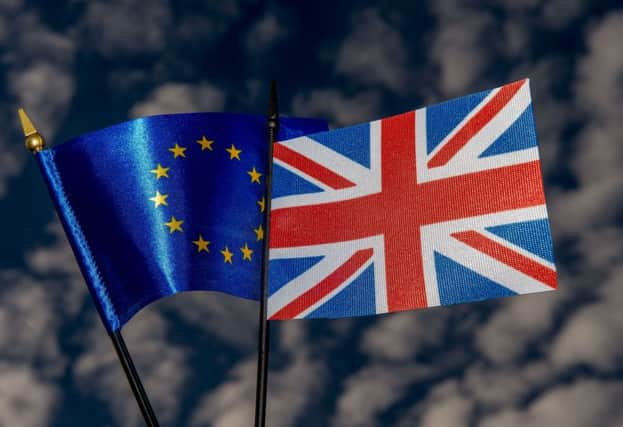Brexit result driven by new liberal/ conservative UK divide


Among them was a big group of “economically deprived and anti-immigration” voters who make up one in eight (12%) of the population and voted in large numbers for withdrawal from the EU, found the report by the National Centre for Social Research (NatCen).
The research also identified a move away from left-right politics in the referendum, with voters dividing between socially liberal Remainers and socially conservative Leavers rather than along party lines.
Advertisement
Hide AdAdvertisement
Hide AdReferendum voters’ choices were more likely to follow the position of the newspaper they read than the political party they support.
The findings appeared to absolve Jeremy Corbyn of blame for failing to deliver a higher proportion of Labour voters for Remain.
The same proportion of Scottish National Party supporters (36%) as Labour voters (36%) voted for Leave and all parties with the exception of Ukip saw a “significant” proportion of supporters vote against their leaders’ advice, found researchers. Even 26% of supporters of the pro-European Liberal Democrats voted Leave.
More than half (54%) of people who did not vote in the 2015 general election cast a ballot in the June 23 poll, and 60% of this group voted Leave, found NatCen. And Leave won “significant” support among those who had no interest in politics (80%) or not very much (56%).
The research also found that the Remain camp failed to get its vote out on referendum day.
Almost one-third (30%) of those who said in May that they backed Remain did not actually vote for it on June 23, with some 19% staying at home and the rest switching to Leave.
By contrast, just 21% of those who backed Leave a month before polling day failed to give it their vote, with 11% not voting and others changing sides.
The “economically deprived and anti-immigration” group identified by NatCen included a lot of new voters, with 34% of them failing to vote in the 2015 election but turning out for the referendum.
Advertisement
Hide AdAdvertisement
Hide AdThe group - who were described as struggling financially, support the welfare state and believe immigration has made things worse for Britain - were strong backers of Brexit.
Newspaper preference acted as a strong indicator of which way voters leant in the referendum, with The Sun and Daily Express having the highest proportion of Leave voters (both 70%), closely followed by the Daily Mail (66%). Meanwhile, only 9% of Guardian readers voted Leave.
NatCen director of survey research Kirby Swales said: “There are many reasons behind the outcome of the EU referendum, but a key factor in the Leave campaign’s success was that they managed to galvanise a wide-ranging group of people.
“This included a group of politically disengaged people and this goes some way to explaining why many polls underestimated the Leave vote - their models simply did not account for these new voters.
“Alongside this, the referendum signalled a move away from traditional left-right politics and towards voting according to underlying political attitudes.
“Whether this is a one-off change or a once-in-a-lifetime decision, or is the start of a step-change in the political landscape remains to be seen.”
